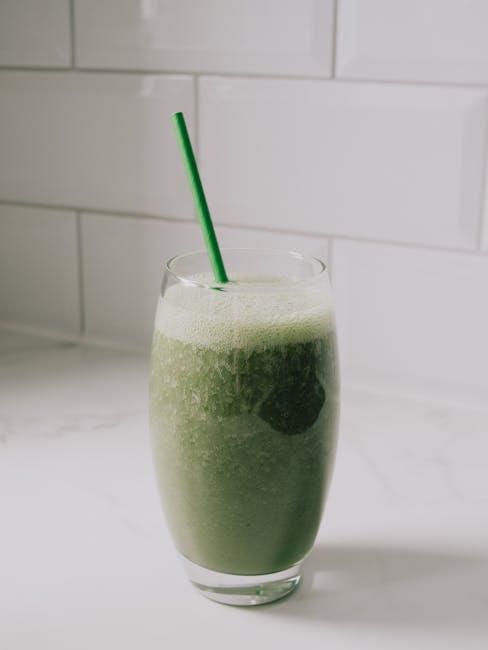In the vibrant tapestry of modern dietary choices, the plant-based diet emerges as a verdant thread, weaving its way into the lives of many who seek wellness and vitality. As the world becomes more conscious of the impact of food on both personal health and the planet, the question arises: is a plant-based diet truly superior for wellness? This article delves into the lush landscape of plant-based eating, exploring its potential benefits and challenges. From the whispers of ancient wisdom to the latest scientific studies, we embark on a journey to uncover the truth behind this green revolution. Whether you’re a seasoned herbivore or a curious omnivore, join us as we explore the nuances of nourishment through nature’s bounty, striving to find balance and well-being in every bite.
Exploring Nutritional Benefits of Plant-Based Diets
Incorporating a plant-based diet into your lifestyle can unlock a multitude of nutritional benefits that can enhance overall wellness. This approach to eating is often rich in essential nutrients, providing a diverse array of vitamins and minerals. Key components like fiber, antioxidants, and phytonutrients are abundant in plant-based foods, contributing to improved digestion and reducing inflammation. These nutrients are pivotal in supporting a healthy immune system and can aid in the prevention of chronic diseases such as heart disease and diabetes.
- Fiber: Essential for digestive health, it helps maintain a healthy weight and lowers cholesterol levels.
- Antioxidants: Protect cells from damage and may reduce the risk of certain diseases.
- Phytonutrients: Natural compounds found in plants that have health-promoting properties.
Moreover, a diet centered around plants encourages a lower intake of saturated fats and cholesterol, which are often linked to animal products. Adopting this dietary pattern can lead to a more sustainable lifestyle choice, benefiting not only personal health but also the environment. As more individuals explore plant-based eating, the variety and availability of delicious options continue to expand, making it an accessible and enjoyable path to wellness.

Understanding Environmental Impacts on Health
Our health is inextricably linked to the environment, and what we choose to eat plays a crucial role in this relationship. A plant-based diet, rich in fruits, vegetables, legumes, and whole grains, not only reduces the carbon footprint but also offers numerous health benefits. Studies have shown that adopting such a diet can lead to improved cardiovascular health, lower cholesterol levels, and reduced risk of chronic diseases. But is it truly superior for wellness, or are there aspects we overlook?
Consider the following potential benefits of a plant-based diet:
- Rich in Nutrients: Provides essential vitamins and minerals that are abundant in plants.
- High in Fiber: Supports digestive health and promotes a feeling of fullness.
- Environmentally Friendly: Generally requires fewer resources than animal-based foods.
While these benefits are compelling, it’s important to approach dietary changes with a balanced perspective. Nutritional needs vary for each individual, and some may require supplementation or mindful planning to ensure they receive adequate protein, vitamin B12, and omega-3 fatty acids. Thus, while a plant-based diet can significantly contribute to wellness, it should be tailored to meet personal health requirements.

Debunking Common Myths About Plant-Based Eating
While plant-based eating is often celebrated for its health benefits, it’s crucial to clear up some misconceptions that might cloud its reputation. One prevalent myth is that plant-based diets are inherently lacking in protein. Contrary to this belief, a well-planned plant-based diet can provide ample protein through sources such as legumes, tofu, tempeh, and quinoa. These foods not only meet protein needs but also offer a spectrum of other essential nutrients.
Another common myth is that a plant-based diet is automatically healthier than omnivorous diets. However, it’s essential to distinguish between whole-food plant-based diets and processed plant-based products. A diet rich in whole grains, fruits, vegetables, nuts, and seeds can be incredibly nourishing, but relying heavily on processed plant-based foods can lead to nutrient imbalances. Here’s a quick rundown of what to consider:
- Whole Foods: Opt for minimally processed options.
- Variety: Include a diverse range of foods to cover all nutrient bases.
- Balance: Ensure a good mix of carbohydrates, proteins, and fats.

Practical Tips for Transitioning to a Plant-Based Lifestyle
- Start Gradually: Making a sudden switch can be overwhelming. Instead, try incorporating plant-based meals a few times a week. This gradual transition allows your taste buds and digestive system to adjust, making the process smoother and more sustainable.
- Explore New Ingredients: One of the joys of a plant-based lifestyle is discovering new foods. Experiment with ingredients like quinoa, lentils, chickpeas, and a variety of leafy greens. This not only diversifies your meals but also ensures a balanced intake of essential nutrients.
- Plan Your Meals: Planning is key to any dietary change. Spend some time each week planning your meals to ensure you have all the ingredients you need. This can help you avoid last-minute temptations and stick to your plant-based goals.
- Stay Informed: Educate yourself about plant-based nutrition to ensure you’re getting all the necessary vitamins and minerals. Consider consulting a nutritionist if you’re unsure about how to meet your dietary needs.
- Find Support: Transitioning to a plant-based lifestyle can be more enjoyable with support. Join online communities or local groups where you can share recipes, tips, and experiences with like-minded individuals.
Embracing a plant-based lifestyle doesn’t mean sacrificing flavor or satisfaction. With a bit of creativity and planning, you can enjoy a wide variety of delicious and nutritious meals that align with your wellness goals.
To Wrap It Up
In the vibrant tapestry of dietary choices, the question of whether a plant-based diet is superior for wellness remains an evolving narrative, woven with both enthusiasm and inquiry. As we traverse this verdant path, it’s clear that the benefits of embracing more plant-based foods are as diverse as the flora itself, offering a rich palette of nutrients and a gentler footprint on our planet. Yet, the journey to wellness is deeply personal, an odyssey shaped by individual needs, preferences, and circumstances.
Ultimately, whether one chooses to fully immerse in a plant-based lifestyle or simply incorporate more plant-based meals into their routine, the key lies in balance and mindfulness. By savoring the bounty of nature with intention, we not only nourish our bodies but also cultivate a deeper connection to the world around us. In this dance of discovery, let us remain open to the symphony of possibilities that a plant-centric diet presents, while honoring the diverse paths that lead us all toward wellness. As we close this chapter, may we carry forward a spirit of curiosity and compassion, nurturing both ourselves and the earth with every choice we make.




